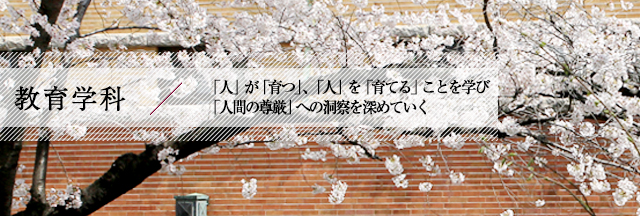Exploring and Seeking Ways to Develop Human Potentials in the Global Era
Educational science (kyoiku-gaku in Japanese) is a comprehensive field of inquiries addressing complex dimensions of human growth and development. It examines educational phenomena from various perspectives and disciplines, including philosophy, history, sociology, political science, and psychology. One of the strengths of our department lies in its approach to compare policies and practices across different times and locations in order to gain meaningful insights into the nature of education.
Students in our program enjoy a cozy, yet stimulating, environment that challenges them to think critically about issues pertinent to education. A small but very diverse group of approximately 20 students are studying in our Graduate Programs. Our graduate students come from different regions of Japan and from abroad including Taiwan, China, Vietnam, Laos, and from other parts of the world. Our students come with various backgrounds. Some do not have previous experience in educational fields. Everyone’s unique experience is valued in our Programs.
Our Programs are essentially Japanese-language based. However, we accept students who wish to pursue their studies in English in one of the three fields: International Education, Education and International Development, and Comparative Education. These three fields complement each other. Students in this track take English-medium courses in and outside our Graduate Programs, and write their Master's theses or Ph.D. dissertations in English.
International Education
International Education is a field that aims to clarify the rationales and relationships of educational affairs and policies in the various contexts of international relations. In the era of migration, there are more actors of educational activities besides the governments of nations-states, and the cross-border/transnational activities have also been developed. We analyze these educational phenomena from various comparative perspectives and explore ways to co-exist in a multicultural society in the context of internationalism for human dignity and peace-building.
Contact: Dr Miki Sugimura
Education and International Development
Education and International Development is a field that aims to enhance our understanding of educational issues in the context of developing nations often characterized by extreme poverty, large income gaps and cultural diversity. We explore the ways in which these issues can be addressed by domestic and international policy and program interventions. Students typically seek their jobs in international/governmental/non-governmental organizations engaged in the improvement of education in the developing world.
Contact: Dr Taro Komatsu
Comparative Education
Comparative Education is a field that applies historical, philosophical, and social science theories and methods to international issues in education. We explore educational issues in different parts of the world, and thus acquire a broader understanding of the dynamic process of education and its relationship with cultural and socio-political factors, as well as a critical appreciation of their own educational traditions. Students will learn a globally inclusive history of comparative education, and the scholars, theories and comparative tools that guide its work.
Contact: Dr Maria Manzon
The courses offered may vary each year. Following courses were available in English in our graduate program during the academic year 2019-2020.
- International Education: Globalization and Education
- International Education: Sustainable Development Goals and Global Citizenship Education
- Education and International Development: Research Methodologies
- Education and International Development: Theories and Issues / Program Evaluation
- Education and International Development: Refugee Education
- Education and International Development: Inclusive Education in the Development Context
- Comparative Education: Origins, Themes and Approaches
- Comparative Education Research: Theories and Methods
In addition, our students take courses from other graduate programs such as in Sociology, Global Studies, and TESOL at Sophia to enrich their learning and supplement credits required for graduation. Students are also allowed to take a course from graduate programs offered at the United Nations University located in Tokyo.
For detailed information about the admission procedure, please visit the following link.
Education | Sophia University Admissions
Our Principles and Approaches
Explore the Nature of Education
Sophia University upholds the principle of respecting and enhancing human dignity. This principle guides us in our approach to teaching and researching. We are striving to understand the fundamental nature of education and its contributions to the enhancement of human dignity. These goals are vigorously pursued by examining philosophical and historical debates around the purposes and approaches of education, as well as evaluating actual policies and practices of education.
Adopt International Perspectives
In our approach to education and research, we value international perspectives. In our classroom discussion and research activities, we often allude to and incorporate the experiences of other countries, not only industrialized countries but also from developing nations. By adopting international perspectives, we attempt to answer both normative and empirical questions around education within increasingly globalizing and multicultural contexts.
Bridge Research and Practice
We believe that research and practice should inform each other. Many of our faculty members are engaged in practice as counselors and consultants in government agencies, non-governmental organizations and industries, as well as trainers for school personnel, education administrators and international development practitioners. We welcome practitioners in our Programs and encourage them to share their experiences with us and their fellow classmates.
Outline of Our Master's and Doctoral Graduate Programs in Education
Master’s Program
The Master’s Program aims to train professionals and researchers who can contribute to the improvement of educational policies and practices. We accept students of diverse backgrounds, including those whose undergraduate major was not in the field of education.
We encourage students to acquire holistic views of education and learn about the basics of various research methods by taking courses across different sub-disciplines of education within our Program and related courses outside our Program.
During the mid-second year, students have opportunity to present their research progress orally and receive feedback from the faculty members. This occasion serves as an occasion to help students assess their progress status and continue working towards the completion of a Master’s thesis.
The graduate students in our Master’s Program are required to attain 30 credits (1 course normally equals to 2 credits). The courses are not limited to those offered by the faculty members of Sophia, but may also be offered by invited lecturers from other universities and institutions, some of which are given in English. All courses are conducted with a small group of students, enabling them to interact actively among themselves and with the instructors. Students can also acquire credits from other Master’s programs in the Graduate School of Human Sciences, such as those in the Graduate School of Sociology or Psychology. In addition, students can acquire up to 8 credits from other graduate schools outside the Graduate School of Human Sciences at Sophia University upon the approval of their advisors. In some cases, students are allowed to transfer credits up to 10 credits obtained from foreign higher education institutions. These systems enable students to fulfill their various needs.
The Master’s Program in Education aims to contribute to human resources development in the globalizing era. Beginning in 2016, students can attend a course (for example, about poverty and environmental issues) offered by the United Nations University. Students can also benefit from the Sophia’s study abroad program for further improving their language skills, intercultural experience and/or collection of research data. Moreover, in order to offer diverse learning opportunities, we occasionally invite professors from foreign universities; in spring 2016, we host a lecturer who specializes in intercultural education and peace education from Bosnia and Herzegovina.
Doctoral Program
Our Doctoral Program aims to train education researchers who can independently design research proposals, undertake data collection & analysis, and write quality academic papers, as well as train professionals who can exercise leadership in educational policies and practices in a wide range of settings.
In order to achieve the above goals, our Doctoral Program in Education has the following features from which students can benefit:
- 1) At the onset of the Doctoral Program, students prepare a three-year research schedule leading up to the completion of a doctoral dissertation, with the support of advisors.
- 2) For each doctoral student, three faculty members in our department form an advisory committee and provide advice to the student throughout his/her studies.
- 3) We assist students to write academic papers for publication in leading journals and in presenting their research outcomes at academic conferences, both within and outside Japan.
Faculty Members
Many of our faculty members are bilingual or trilingual. Each faculty member specializes in a different sub-field of education, as shown in the following list (Faculty profiles are found further below).
- Philosophy of Education
- History of Educational Thought and Practice
- Lifelong Education (youth work and ESD)
- International Education
- Education and International Development
- Sociology of Education
- School Education (curriculum & instruction)
- History of Japanese Education
- Comparative Education
[Language] indicates the language(s) that a faculty uses to teach courses and/or supervise thesis/dissertation papers. Some faculty members who teach/supervise only Japanese-speaking students can communicate orally in English.
-
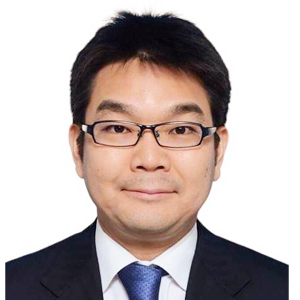
Shinichi AIZAWA
Professor
Sociology of Education
Sociology of Education
My research focuses on sociology of education, especially, a historical relation between school education and society in Japan and developed countries. Now, I am approaching this relation with both quantitative and qualitative methods. I wrote my doctoral dissertation about Japanese egalitarianism in school education with a historical qualitative method. However, I have participated in many quantitative research projects. Some projects collect a national representative sampling data. I have a class on introductory quantitative data analysis and a class on research methods for graduate students. I am looking forward to seeing you in this graduate school.
[Language: Japanese]
-
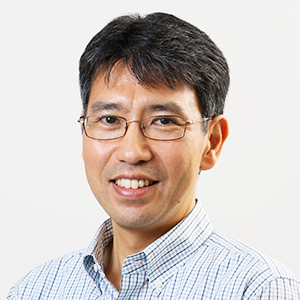
Taro KOMATSU
Professor
Education and International Development
Education and International Development
My research focuses on education policy, governance, and administration in the context of developing nations and post-conflict societies. I am particularly interested in understanding how education affects social cohesion and peace. Other research interests include education system convergence and divergence in the global era, democratic citizenship education, and international aid to education. I am approaching these areas, using theories drawn from sociology and political science, and employing qualitative, quantitative and mixed data-collection and analytical methods. I enjoy working with motivated graduate students in exploring these emerging and exciting fields of inquiry.
[Languages: Japanese & English]
-
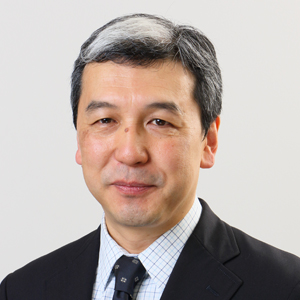
Masahiro NASU
Professor
School Education (curriculum and instruction)
School Education (curriculum and instruction)
Based on psychology theories of learning and motivation, I have been researching curriculum and instruction methods in elementary schools. Throughout my research, I have been adopting an approach to “think & reflect while improving” actual practices, while working with school teachers. My recent research interests include finding a compatible way to achieve two different demands and facilitating child-centered pedagogy while improving basic academic ability by reexamining subject teaching and education for living from the new perspective called competency-based learning.
[Language: Japanese]
-
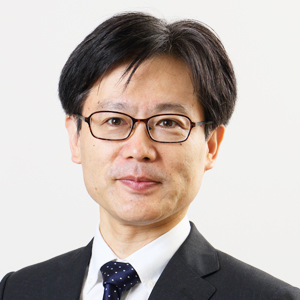
Akira SAKAI
Professor
Clicinal Sociology of Education
Clicinal Sociology of Education
I am a sociologist working in the area of education. I am interested in the learning and development of children and youth in the era of globalization and of the widened disparities regarding access to quality education. My research project focuses on the students who tend to be excluded from schools or to be in marginal positions in schools, such as students who are absent from school for a long time, who have dropped out of high school and children who have not been attending school. Those issues are studied with qualitative methodologies such as school ethnography, interview research, and discourse analysis on education and schooling. I am also involved in research on the educational reform in Japan to enhance cooperation among schools and to strengthen the linkage between schools and communities in order to tackle various student difficulties.
[Language: Japanese]
-
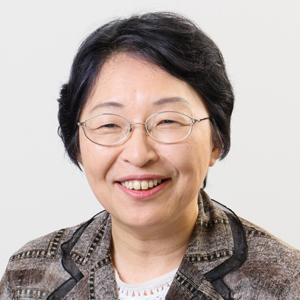
Miki SUGIMURA
Professor
Comparative and International Education
Comparative and International Education
The main topic of my research is a comparative study of international migration and change in a multicultural society. People’s mobility beyond borders causes social changes, including competitions and conflicts. However, it also brings us a new possibility of cooperation for creating a diversified society. My research focuses are: 1) people’s mobility beyond borders and multicultural education; 2) functions of international and transnational higher education policy; 3) the roles of international cultural and educational exchange; and 4) regionalism and regionalization through educational exchange and cooperation. I would like to welcome students who are interested in the topics above with a comparative mind.
[Languages: Japanese & English]
-
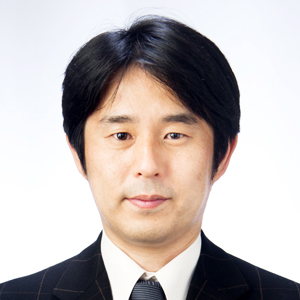
Masamichi UENO
Professor
Education and Schooling / Philosophy of Education
Education and Schooling / Philosophy of Education
My research focuses on education and schooling, and philosophy of education. Specifically, I am involved in educational research about school reform, learning, art, citizenship and democracy in terms of connecting educational theories with practices. I used to take up the theme of school reform and the public sphere based on American philosophy of education, but currently my interests extended to include comparison of education in Europe and East Asia. In the course of graduate school, I will approach current educational issues through considering theories and practices of education, learning, and schooling.
[Language: Japanese & English]
-
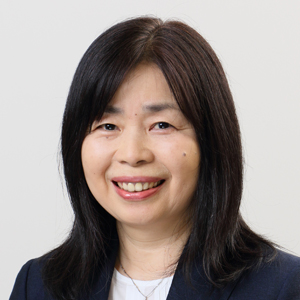
Katsumi YUKAWA
Professor
History of Japanese Education
History of Japanese Education
I have been conducting research on the history of early childhood education in Japan. Japan's early childhood education is at a turning point today, facing issues such as unifying kindergarten and day nursery, making early childhood education compulsory and free of charge, training nursery teachers and improving their status. When considering these problems, historical research is highly suggestive as it helps one to see through and grasp contemporary problems from the past. In the graduate school, students learn to conduct historical investigations on a wide range of topics, not necessarily limited to the history of early childhood education. Students also learn how to treat historical materials in order to establish a solid foundation of historical research in education.
[Language: Japanese]
-
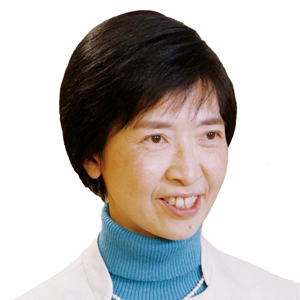
Maria MANZON
Associate Professor
Comparative Education
Comparative Education
My main research interest is in a globally inclusive histories of comparative education. This means an open dialogue across cultures, spiritualities, languages, and intellectual traditions. I am interested in exploring the unique contributions from Asia, especially in relation to women’s ways of knowing, parental involvement, spirituality and values, and moral purposiveness in comparative studies in education.
[Language: English]
-
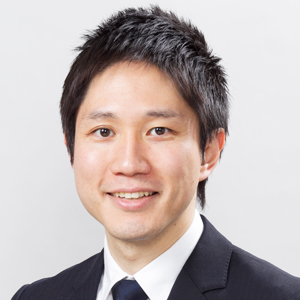
Hiroshi SUZUKI
Associate Professor
Philosophy of Education
Philosophy of Education
My research focuses on philosophy of education and history of educational thought. Particularly, I am interested in how moral education and peace education should be positioned within school education and how they can be connected. Until now, I used to study Immanuel Kant’s philosophy from a pedagogical point of view and explore its contemporary significance. Currently, I am focusing on Kant's theory of peace and philosophy of history, researching the principles of peace education required in the coming era.
[Language: Japanese]
Contact Information
Office of the Department of Education
Chiyoda-ku, Kioi-cho 7-1
102-8554 Tokyo, Japan
Tel:+81 3-3238-3650 (in Japanese) *If you call from within Japan, please dial 03-3238-3650
E-mail:deducat@sophia.ac.jp (in Japanese or English)
Thank you for visiting our Program website!


